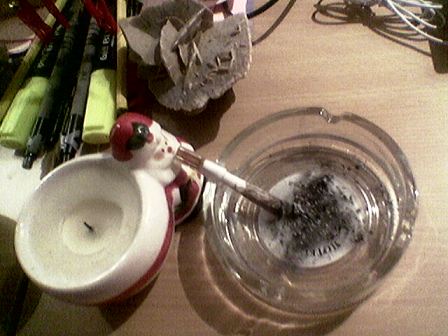This frightening belief was popularized in the 1970s when Ronald Reagan famously stated, “the most reliable scientific sources say permanent brain damage is one of the inevitable results of the use of marijuana.”

In the following years, Reagan’s scientific sources would be discredited and subsequent studies would be unable to replicate any evidence of brain damage, yet the myth remains as prominent today as it was 40 years ago.
False Monkey Study
Dr. Robert G. Heath was a researcher at Tulane University in New Orleans when he reported the findings of an experiment that apparently proved a connection between marijuana use and brain damage. Dr. Heath had conducted the study on rhesus monkeys by exposing them to an equivalent of 30 marijuana joints per day. After 90 days, the monkeys began to waste and die. When they were later autopsied, Dr. Heath reported significant brain damage in the monkeys that had been exposed to cannabis.
Despite strong support from the federal government, the study was heavily criticized for inaccurate procedures upon its release. Critics suggested that suffocation may have been the actual cause of brain damage instead of marijuana itself.
The findings were challenged and ultimately dismissed by a pair of larger, better-controlled studies – one by Dr. William Slikker of the National Center for Toxicological Research and the other by Charles Rebert and Gordon Pryor of SRI International – that attempted to replicate Dr. Heath’s results without success. The studies showed no change in the brain structure of monkeys that were given daily doses of marijuana for up to one year.
Human Studies
A number of studies have been conducted on human marijuana users over the past few decades, beginning in the 1970s as well.
In 1971, a study published by Campbell et al. involving 10 heavy users seemed to demonstrate a decrease in brain cells in a specific area of the brain, adding further to public concerns over marijuana use and brain damage. However, subsequent studies (Co et al., 1977, Hannerz and Hindmarsh, 1983 and Kuehnle et al., 1977) failed to replicate these findings, suggesting that the initial study was flawed yet again.
Recent research conducted on human subjects has also revealed conflicting evidence on marijuana use and brain damage. A study published in 2000 by researchers at the University of Iowa found no evidence of cerebral atrophy or regional volume differences in MRI scans of frequent cannabis users when compared to non-users.
On the other hand, the support for marijuana use causing brain damage seems to be stronger in studies that separate users by age. An early study conducted by Wilson et al. (2000) found that marijuana users who started using before the age of 17 seemed to exhibit noticeable changes in brain matter volume. However, the study found no differences in whole brain volumes overall.
In 2012, Duke University researchers published the results of a study that seemed to show that adolescents who started using marijuana before the age of 18 – and diagnosed as addicted by the time they were 38 – experienced a drop in IQ by early adulthood. The study suggested that heavy users could lose as much as 8 IQ points. However, an analysis published a few months later in the same medical journal determined that the findings of the previous study were once again plagued with inaccuracies and – using a statistical model to evaluate the original study’s data – seemed to show that there was no correlation between marijuana use and a drop in IQ.
Finally, studies that have investigated the effects of marijuana on brain cells have revealed findings that directly contrast with the popular belief of marijuana causing brain damage. In fact, a study published in 2005 showed that a synthetic form of THC could increase the growth of new brain cells – a process known as neurogenesis. CBD has also been found to have a similar effect on brain cell generation. Taken together, these findings seem to contradict the notion that marijuana may cause abnormal brain development in adolescent users.
Warning: Alcohol and Caffeine Can!
Most commonly abused substances – including alcohol and caffeine – can cause permanent brain damage so it may be a surprise to hear that marijuana is safe in this regard. Although users of marijuana may not be at risk of neurological damage, cannabis is still a psychoactive substance that subjects its user to a temporarily altered state of mind.
Source: truthonpot.com